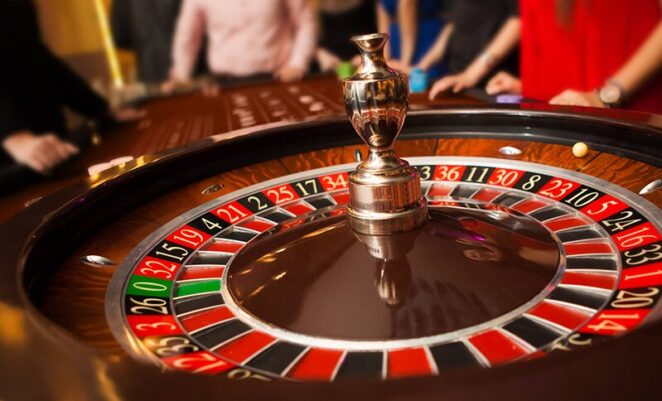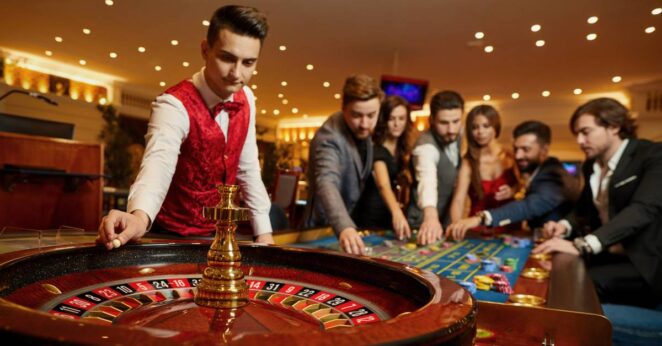How Roulette Players Approach Life - The Hidden Traits of Spinners - MP3 News Wire (original) (raw)
Is life about taking calculated risks or rolling the dice on fate? For those who live with the high-stakes thrill of the spinning wheel, the question goes beyond the table. Their choices reveal surprising traits that blend courage, strategy, and perhaps a touch of recklessness.
Key Points
- High rollers don’t always win, but their approach can teach valuable lessons about risk.
- Casinos treat consistent big spenders with lavish perks, but the house always wins in the long run.
- The psychology of big betting ties to confidence, discipline, and understanding limits.
- Stories about roulette players reveal the allure of luck and the trap of overconfidence.
- Strategic thinking, not blind chance, separates serious players from reckless ones.
Do High Rollers Have Better Odds?

Source: pinterest.com
It’s easy to assume that those betting large sums enjoy better chances of winning. The truth? Not quite. Odds in any game of chance remain fixed, favoring the house. Big players do, however, gain access to exclusive benefits. Higher stakes can bring special tables, private rooms, and personal attention from dealers.
What separates a high roller from an average player is mindset. A significant wager is less about hope and more about calculated decisions. Those who succeed understand patterns, avoid emotional mistakes, and manage their funds with precision.
How Do Casinos Treat Big Players?

Source: terrehautecasino.com
Big spenders receive royal treatment. VIP lounges, complimentary hotel suites, gourmet dining, and even private jets are common perks. Casinos, like TND168, specialize in catering to high rollers with exclusive services. TND 168 provides a seamless experience for enthusiasts, including online football wagering, live gaming, and rapid withdrawals around the clock.
This level of care isn’t just about generosity. It’s an investment. The house wants loyal patrons to keep coming back, increasing the probability of profit. High rollers become walking advertisements for luxury, attracting others to try their luck.
What’s the Psychology of Betting Big?
Big bets often stem from more than just wealth. Psychology plays a huge role. Confidence is one part of it. Some players thrive on the adrenaline of risk, using their boldness to make decisions quickly. Others rely on strict discipline, never wagering beyond their means.
Then there’s the allure of breaking records. Stories of players turning small fortunes into millions drive others to emulate their success. Unfortunately, this mindset can backfire. Overconfidence often leads to chasing losses—a dangerous spiral that casinos count on.
For instance: One legendary gambler placed his life savings on a single spin and won. Yet for every win, countless others walk away empty-handed. The difference lies in knowing when to stop.
Are Roulette Players Strategists or Risk-Takers?

Source: medium.com
The answer depends on the individual. Some rely solely on instinct, placing bets based on gut feelings. Others bring a methodical approach. The Martingale strategy, for example, involves doubling bets after each loss, aiming to recoup losses when a win eventually occurs.
Here’s where strategy breaks down: luck is unpredictable. Even the smartest plan fails without an exit point. Spinners who last understand this, keeping their emotions in check and sticking to pre-set limits.
Myths About Roulette
- Myth: Betting big guarantees bigger wins.
Fact: It increases risk, not odds. - Myth: Professional players win consistently.
Fact: No strategy can guarantee profit long-term. - Myth: Roulette is pure luck.
Fact: While luck dominates, timing and discipline matter.
What Makes the Lifestyle So Enticing?
It’s not just the thrill of the game. For many, the social aspect adds an extra layer of excitement. VIP players network with like-minded individuals, enjoy exclusive parties, and gain prestige. The roulette wheel becomes more than a game—it’s a symbol of status.
Others find meaning in the challenge. Winning at roulette may depend on luck, but mastering the mental game provides satisfaction. Like in life, success comes from balancing risk and reward.
Lessons Roulette Players Teach About Life
- Risk isn’t inherently bad: Calculated risks can lead to significant rewards.
- Discipline beats emotion: Whether betting or making life choices, staying grounded prevents mistakes.
- Know when to walk away: Recognizing limits is a sign of strength, not weakness.
A Final Spin

Source: casinosupply.com
Roulette players reveal more about human nature than chance. They show how confidence, strategy, and calculated risk intersect with ambition. Whether you play for fun or analyze the game from afar, the lessons from the table remain clear: success requires discipline, and fortune rarely favors the reckless.
If life feels like a gamble, perhaps it’s time to ask: are you the player or the spectator?